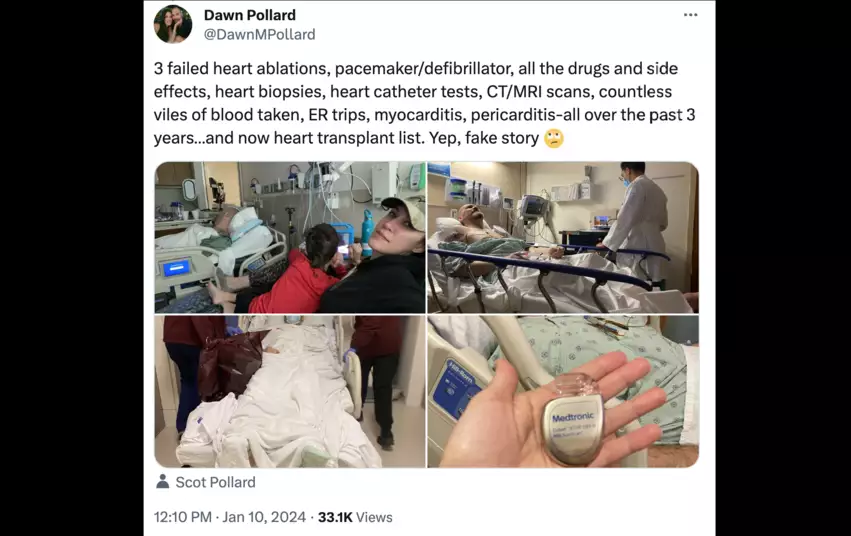Former NBA champion, Survivor contestant now fighting for his life as he waits for a heart transplant
Scot Pollard, who played several seasons in the NBA and competed on “Survivor,” has been admitted to the ICU at Vanderbilt University Medical Center in desperate need of a heart transplant. He expects to stay there until his doctors can find a donor, the Associated Press reported, and his 6-foot-11 frame means only certain donors will do.
Pollard has a long family history of heart disease, and he’s been on a watch list for several years now due to his size. In 2021, he contracted a virus—and that’s when doctors first confirmed he was showing signs of cardiomyopathy.
He’s been in and out of hospitals ever since. As his wife, Dawn, shared on social media, he has undergone multiple ablations and even received a pacemaker. Now, however, his conditions have worsened to the point that he had to be admitted at Vanderbilt—and he will likely remain there until he gets good news. He was previously considered a Status 4 heart transplant candidate, because he was “stable.” Now, however, he has been changed to a Status 2 candidate.
Images courtesy of Scot and Dawn Pollard. Click here to view the post on Twitter/X.
In January, Pollard shared his story online, noting that some people were accusing him of “faking it” to get his name in the news. “Ever been on a heart transplant list and then have someone say you’re faking it? It’s super weird,” he posted.
At the time, Pollard was hoping to make it at least another five years before a heart transplant was necessary. His doctors had even noted that he could eventually be a suitable candidate to receive a pig heart transplant. His heart never showed signs of improving, however, and waiting several years appears to no longer be a viable option.
The Indianapolis Star reported on Pollard’s situation at length in January. Click here for the full profile piece from writer Gregg Doyel.


